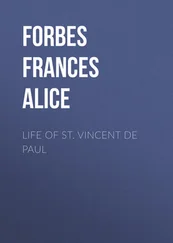But it was time to think of the boy's education, and it was proposed to send him to school in Tagaste. It was a pagan school to which the child must go, pagan authors that he must study, and, worse than all, pagan conversation that he must hear and pagan playmates with whom he must associate.
Patricius was proud of the beauty and the intelligence of his little son, and hoped great things for the future; but Augustine's early school-days were far from brilliant. Eager as the boy was to learn what interested him, he had an insurmountable dislike to anything that caused him trouble. It bored him to learn to read and write, and the uninspiring truth that two and two make four was a weariness of the flesh to him. Though the stories of Virgil enchanted him, Homer he never thoroughly enjoyed nor quite forgave, for had he not for his sake been forced to wade through the chilly waters of the Greek grammar?
Unfortunately for Augustine, such dismal truths as two and two make four have to be mastered before higher flights can be attempted. The Tagaste schoolmasters had but one way of sharpening their scholars' zeal for learning – the liberal use of the rod.
Now, Augustine disliked beatings as much as he disliked all other unpleasant things, but he also disliked work. The only way of evading both disagreeables was to follow the example of the greater number of his fellow-scholars – to play when he should have been working, and to tell clever lies to his schoolmasters and his parents in order to escape punishment. Such tricks, however, are bound to be found out sooner or later, and Monica, realizing that much could be got out of her son by love, but little by fear, took him for a course of instruction to the Christian priests, that he might learn to overcome himself for the love of God.
As a result Augustine took more earnestly to his prayers, asking, above all, however, that he might not be beaten at school. His mother, finding him one day praying in a quiet corner to this intent, suggested that if he had learnt his lessons for the day he need have no fear, but if he had not, punishment was to be expected. Patricius, who was passing and overheard the conversation, laughed at his son's fears and agreed with his wife. Augustine thought them both exceedingly heartless.
As the boy grew older, however, his wonderful gifts began to show themselves, and his masters, seeing of what he was really capable, punished him yet more severely when he was idle. Augustine, too, began to take pride in his own success, and to wish to be first amongst his young companions. The latter cheated as a matter of course, both in work and at play. Bad habits are catching, and Augustine would sometimes cheat too. When found out he would fly into a passion, although no one was so severe on the dishonesty of others as he. And yet, though he would often yield to the temptations that were the hardest for his pleasure-loving nature to resist, there was much that was good in the boy. He had a faithful and loving heart, an attraction for all that was great and noble. He was, in fact, his mother's son as well as his father's; the tares and the wheat were sprouting side by side.
Конец ознакомительного фрагмента.
Текст предоставлен ООО «ЛитРес».
Прочитайте эту книгу целиком, купив полную легальную версию на ЛитРес.
Безопасно оплатить книгу можно банковской картой Visa, MasterCard, Maestro, со счета мобильного телефона, с платежного терминала, в салоне МТС или Связной, через PayPal, WebMoney, Яндекс.Деньги, QIWI Кошелек, бонусными картами или другим удобным Вам способом.











